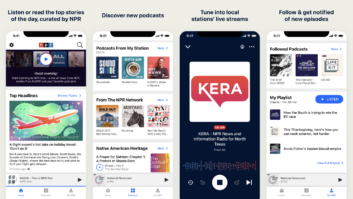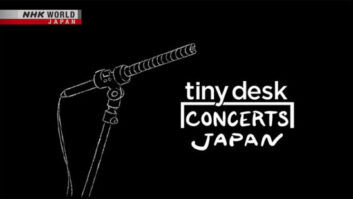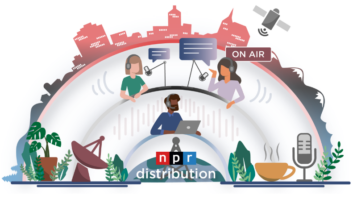NPR Defunding
Apr 1, 2011 1:00 AM, By Chriss Scherer, editor
When the House of Representatives voted to cut funding from National Public Radio, a flurry of debate began. One of the roots of the issue lies in Congress trying to find ways to cut federal spending. But the debate cannot stand only on the financial issues. Immediately, politics were invoked, and issues about conservative vs. liberal news reporting became a prime rallying point. Funding to NPR does not go directly through Congress. Federal NPR funds are disbursed by the Corporation for Public Broadcasting to both NPR and NPR member stations. NPR itself receives an estimated 2 percent of its money directly from the CPB. It receives about 40 percent of its federal money from NPR member stations.

The debate has revealed (to me at least) that many people do not understand the relationship between NPR as a program creator and distributor and NPR member stations. Cutting the federal funds will affect the network operator, but it will also affect many local radio stations who use federal funding to operate.
My radio career has always been on the commercial side. I admit there were times I would hear a public radio station engineer lament that he was not going to get his million dollar federal grant to install a new transmission system, which would certainly rub me the wrong way. Meanwhile, I was scraping all I could out of an engineering budget that was significantly less. I’m not saying public radio stations operate with fiscal irresponsibility. They manage their budgets within their means. But so do the commercial stations. But I was never able to file for a grant to cover any shortcoming. I have toured many public radio facilities. Most of them are top-notch. The engineering is solid, The equipment is good. Could some of these stations have completed their projects with products from the next-leading and less expensive brand? Certainly. But they are all working within their means to get the job done.
Cutting unnecessary spending is a practical measure in balancing the budget. But this bill � even without the political debate � does not appear to be well reasoned. Cutting NPR funding will not only affect the network side, but many local radio stations. Can these stations make up the lost funds through local support? Probably not all of the money.
If this bill were to pass, the local public radio stations would be placed on something of a more-level playing field with the commercial stations. But most public stations carry programming that is not a mass-appeal form either. (And again, I’m not talking about any politically oriented programming.) Many stations carry jazz (real jazz mind you) and classical music. These great art forms could lose their voice if a bill like this is passed.
Cutting NPR funding has been raised many times in the past, but this is the farthest the idea has gotten to date. Presidents Nixon, Reagan and GW Bush tried to cut NPR funding. So did Newt Gingrich in the mid-1990s. Since the Corporation for Public Broadcasting was launched in 1967 it has faced threats of losing federal support.
It’s unlikely the NPR defunding bill will pass the Senate, and the president has already voiced his opposition to the bill. But this should at least raise the awareness of public radio stations to develop their own plans in case the idea ever does become reality.
April 2011
HD Radio monitors ,choosing an audio over IP network switch, a look at the Clear Channel Chicago rebuild, transmission line pressure monitoring, and Field Reports on the FM Services TLM-1 and Audio-Technica AT4040….










